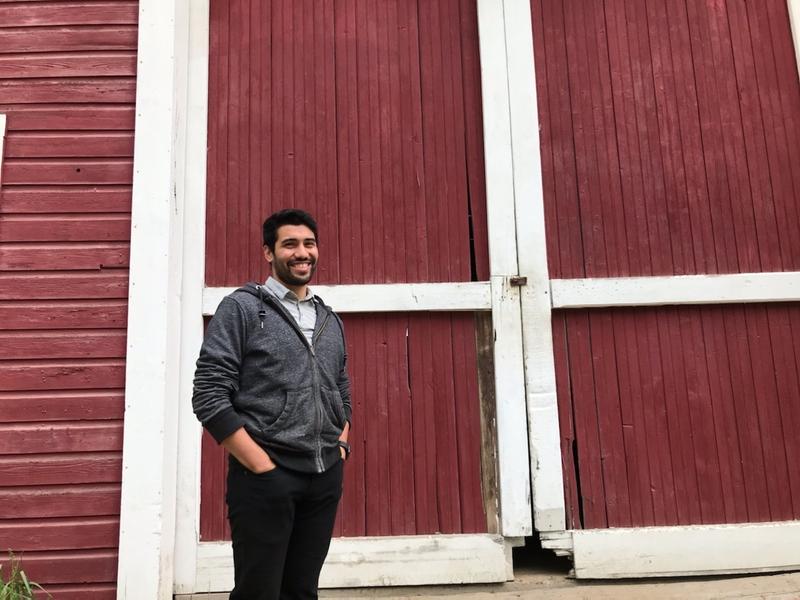‘The Racism Pandemic’: Advocates Hope New Commission Will Improve Health Equity In Vermont

Wichie Artu stands in front of a barn door at Magnetic Fields, the farm he runs with his fiance in Athens. Artu, who works in health data, is part of a growing community of BIPOC farmers in southern Vermont fighting for health equity. (Peter Hirschfeld/VPR)
Vermont is about to embark on a new effort to address racial and other disparities in the health care system.
Over the last two years, the life expectancy of Black men in the United States has dropped by three years. According to the Centers for Disease Control, the racial gap in life expectancy is now wider than it’s been in nearly a quarter century.
It’s one example of how COVID-19 has illuminated and exacerbated racial disparities in the country’s health care system.
“Those of us working in the health equity field called COVID-19 the racism pandemic, because it has resurfaced many of the issues that have existed for a long time,” said Dr. Maria Mercedes Avila, an associate professor of pediatrics at UVM’s Larner College of Medicine.
Legislation signed into law by Vermont Gov. Phil Scott last month seeks to mitigate those disparities by creating an Office of Health Equity, as well as a new Health Equity Commission.
Health equity experts like Wichie Artu, a data analytics and health specialist, said the commission will give BIPOC Vermonters, as well as Vermonters with disabilities and gay and transgender residents, a stronger voice in public health policy.
“What’s important is that we are providing power to a committee full of organizations who do the work on the ground, who understand the needs of the people,” said Artu, who also serves as vice president of the Windham County, Vt., branch of the NAACP.
